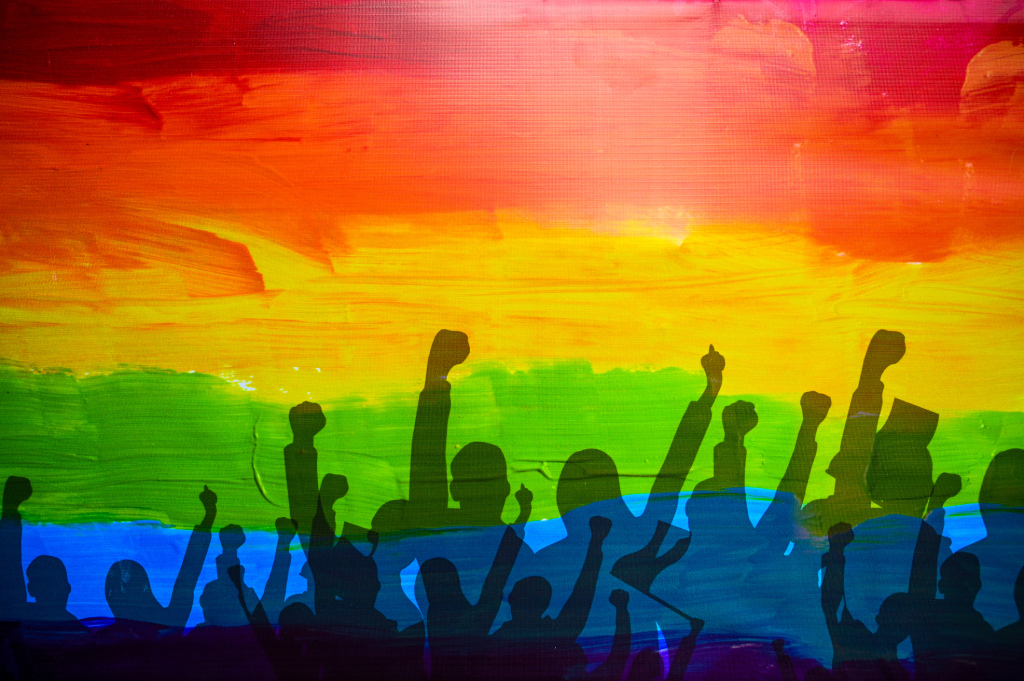LGBT+ people existed freely in Africa before colonialism brought discrimination to the continent.

The discrimination against lesbian, gay, bisexual, transgender and intersex in Africa has resulted in many of us being stripped of our dignity, with limited access to sexual and reproductive health services. Governments like Kenya and Uganda are tightening their grip on anti-LGBT+ laws, while 30 more African states continue to criminalise and attack LGBT+ people.
There are progressive legislative tools meant to guarantee the dignity of all Africans. But a study published January of this year analysing regional enforceable treaties, from the “African Charter on Human and People’s Rights” adopted in 1981 to “Agenda 2063; The Africa We Want”, found none of them explicitly forbid discrimination on the basis of sexual orientation and gender identity and expression.
Not specifically stating that discrimination on the basis of sexual orientation and gender identity or expression is forbidden allows more room for the fostering hate against LGBT+ people.
The most prominent of these human rights declarations, the African Charter on People’s and Human Rights, was interpreted progressively by courts in Botswana to abolish the criminalisation of homosexuality last year.
But the document still remains marred with contradictory sentiments that challenge the fundamentality of rights. For example, it states that the family is the “natural unit and basis of society” and is tied to “virtues of historical tradition and the values of African civilization”. This kind of statement is often interpreted as approving only of straight couples and parenting as a study was done by Nonyelum M. Obi from Nnamdi Azikiwe University in Nigeria, looking at the role artists can play in “protecting the much cherished African values from the influence of urbanization and modernity”. Among others, the study things states that “homosexuality and many other acts of immorality abound in African today”.
In April 2015 the African Commission on Human and Peoples’ Rights gave a South African NGO called the Coalition of African Lesbians (CAL) observer status, the first openly LGBT+ organisation to be granted this. But their status was soon withdrawn, with the commission stating that the CAL did not promote African traditions, values and identity. The then vice-chair, Mohamed Bechir Khalfallah, went as far as saying, “[LGBT+] people are an imported virus that will spread across Africa and have no place in this human rights body.”
When the matter was taken to the African Court on Human and Peoples by the CAL and the Centre for Human Rights at the University of Pretoria, the commission refused to consider the case, saying that the NGO did not meet requirements for “African organisations recognised by the AU (African Union)”. The Conversation
The popular belief across much of the continent that same-sex relations are unnatural, immoral, and un-African goes against the dominant framework of equality for all, found in the same treaties. It is also factually incorrect.
Pundits continue with this narrative despite public knowledge of, for example, a bisexual monarch in Uganda in the late 1800s and the tomb of Niankhkhnum and Khnumhotep kissing and holding hands found in Egypt dating back 2300 BC.
LGBT+ people existed in Africa freely before the British and other colonisers brought Christianity to our shores. The colonising powers punished sexual acts outside of the heterosexual norm, stating that they go against God’s will. The Protestant faith, Rastafarian, Orthodox Catholic Church and Islam have also joined the echo in using religion to further entrench homophobia. Islamic Homophobia is more dominant in northern parts of Africa like Egypt which signed the Charter under the condition that Article 8 protecting freedom to conscience “be implemented in accordance with the Islamic Law”.
When African states, allies and human rights defenders choose to be silent over the fact that we are denied protection from discrimination, our access to fundamental services like decent sanitation and hygiene, healthcare, and subsequently our right to dignity and life, are limited.
There are streaks of hope.
Last year, Botswana and Angola repealed their penal codes that criminalised same-sex sexual relations. Both countries also offered protection against discrimination for LGBT+ people.
Mozambique repealed its anti-homosexuality laws in 2015, but does not offer protection against discrimination. Lesotho repealed its laws in 2012, Seychelles in 2016 and South Africa in 1998.
As we celebrate Pride Month, I would like to make a plea to social justice warriors to stand vigilant against African leaders using notions of “African values, traditions and customs” to rob my people of their birthright to dignity and justice.
Equality and freedom, justice and dignity are birthrights of all born persons regardless of race, class, religion, sex, sexual orientation and gender identity and expression.
When Africa is restored back to those it was robbed from, may we be remembered as an integral and equal part of this land’s heritage.
This article first appeared at Reuters.
